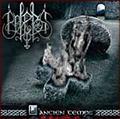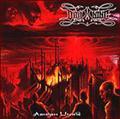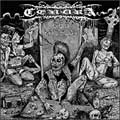DANFORTH (FRA) - No Fear 2 Bleed (2009)

Label : Deadlight Entertainment
Sortie du Scud : janvier 2009
Pays : France
Genre : Hardcore
Type : Démo
Playtime : 6 Titres - 22 Mins
DANFORTH est un groupe de Hardcore parisien qui officie dans un style très typé US, dans la veine de PRO PAIN ou MADBALL. C’est sûr, on pourrait trouver mieux dans le genre innovation, mais le groupe s’en branle. Cela ne l’intéresse pas forcément de rechercher le nouveau son « ultra hype » qui va déchirer dans les magazines à la mode. Non, ils préfèrent peut-être s’enfermer dans un certain carcan déjà moult fois usité mais le faire d’une manière parfaitement maîtrisé. Du coup, ils sont à même de se faire plaisir dans leur musique, de proposer des parties qui entrainent forcément et qui démangent les guiboles de se lancer dans un mosh seul dans son salon. Et puis, ils se concentrent sur le but de leur musique : faire passer leur message. Celui-ci est contestataire à 200%, parfois peut-être un rien naïf, mais mieux vaut être naïf et utopiste que complètement apathique et passif. Ça bastonne donc dans tous les sens ; on n’a pas une seule seconde de répit (l’impression de calme de l’introduction est biaisée). Le son est bien lourd et la basse très présente pour écraser un peu plus s’il le fallait. Le chant oscille entre anglais et français, tout ça dans les mêmes morceaux. Ça hurle en anglais et ça parle en français, en règle générale. Du coup, on beugle nous aussi et on est attentif quand le chant est plus posé. Mais plus posé n’enlève rien à la hargne sous jacente et au propos. Après, si tu soutiens Sarko et tous les « grands » de ce monde taillés dans le même moule, tu n’écoutes pas DANFORTH.
OK, c’est pas forcément d’une grande originalité. OK, parfois ça aurait mérité un peu plus de prise de risque. Mais putain, ce que c’est bon ! Du coup, j’attends un album avec impatience pour voir ce qu’ils peuvent fournir sur la durée. Mais je n’ai aucune crainte.
Ajouté : Jeudi 14 Mai 2009
Chroniqueur : Wong Li
Score :    
Lien en relation: Danforth Website
Hits: 14747
|













